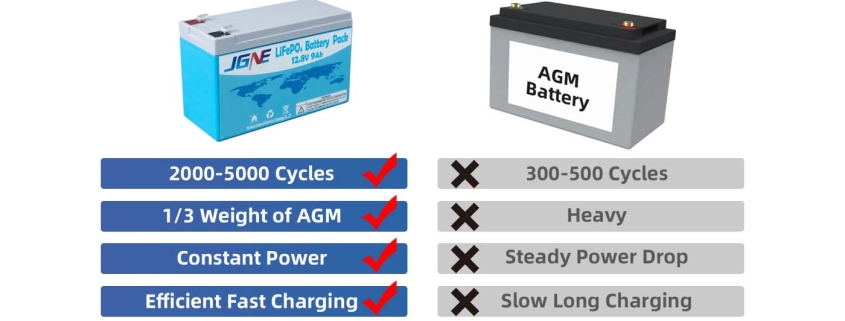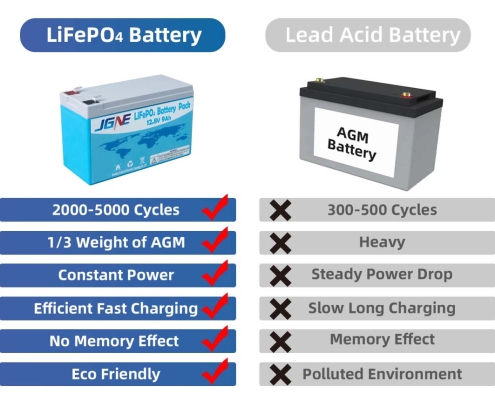Future Trends in Medical Power Solutions for Mobile Healthcare Equipment
Medical carts and mobile healthcare equipment have become vital tools in modern healthcare environments, enabling seamless patient care across clinics, hospitals, and emergency services. At the heart of these advanced systems arethat ensure reliable and uninterrupted functionality. The evolution of these power solutions has been especially critical, with innovations such as medical carts battery advancements playing a pivotal role in driving the future of healthcare efficiency. Medical Power Solutions are designed to support the demanding needs of healthcare settings, ensuring consistent performance and enhancing patient care delivery.
Table of contents:
Innovations in Battery Technology
The Impact of Wireless Charging Systems
Innovations in Battery Technology
Battery technology continues to evolve, providing groundbreaking solutions to the challenges of powering mobile medical equipment. One major leap is through the adoption of LiFePO4 (Lithium Iron Phosphate) batteries, which outperform traditional battery chemistries in several ways. These batteries are safer due to their high thermal stability and resistance to incidents like thermal runaway or combustion, which is vital in sensitive medical environments. Another key innovation is their high energy density, allowing for compact yet powerful batteries capable of extended operation without frequent recharging. Advanced features such as stable voltage throughout discharge cycles enhance equipment reliability by preventing power fluctuations that could damage sensitive medical devices. Their long cycle life and faster charging capabilities ensure that medical carts equipped with these batteries can operate efficiently and consistently, reducing downtime and ensuring optimal performance. By choosing a leading medical carts battery manufacturer, healthcare providers can leverage these innovations to elevate patient care standards further.
The Impact of Wireless Charging Systems
Wireless charging is another game-changer for mobile medical equipment, offering significant advantages for healthcare efficiency and ease of use. Wireless charging eliminates the need for cumbersome cables and manual plug-ins, a feature particularly valuable in fast-paced medical environments. It allows medical carts and equipment to be charged seamlessly when stationed or during operational breaks, reducing reliance on busy electrical infrastructure. This ensures equipment readiness at all times, lowering the risk of disruption in patient care caused by power deficiencies. Increasing adoption of this technology also enhances healthcare ergonomics, reducing workplace hazards by minimizing cable clutter. This level of integration represents one of the most promising trends in medical power solutions, seamlessly combining innovation and convenience for both healthcare workers and patients.
Sustainability in Healthcare
Modern healthcare systems are increasingly prioritizing sustainability, and medical power solutions are aligning with this trend by promoting eco-friendly practices. LiFePO4 batteries stand out in this area due to their environmental advantages over traditional chemistries like lead-acid. They do not contain toxic materials such as cadmium or lead, making them less harmful to the planet. Additionally, these batteries are recyclable, contributing to a circular economy. The rise of green medical power solutions allows healthcare institutions to reduce their ecological footprint while maintaining high performance and safety standards. For instance, leveraging batteries with low environmental impact aligns with global sustainability goals and enhances a healthcare organization’s reputation as an eco-conscious provider. Partnering with industry leaders in eco-friendly medical power solutions, like certain medical carts battery manufacturers, opens up a pathway for facilities to provide high-quality care while supporting the planet.
By leveraging advancements in battery technology, wireless charging, and sustainable power solutions, healthcare systems can keep mobile medical equipment running efficiently and reliably. These innovations address common issues like downtime, cumbersome charging, and the environmental impact of traditional power systems. Reliable power allows medical professionals to focus more on patient care rather than logistical challenges, improving overall care quality. Wireless charging adds convenience and flexibility, keeping equipment operational without constant manual intervention. Sustainable solutions, like solar energy or recyclable batteries, support global efforts to reduce environmental impact and align healthcare with eco-friendly practices. The next generation of medical power systems enhances efficiency while promoting a sustainable future where innovation, patient care, and environmental responsibility go hand in hand. By adopting these advancements, healthcare can meet modern demands with a greener, more reliable infrastructure.



